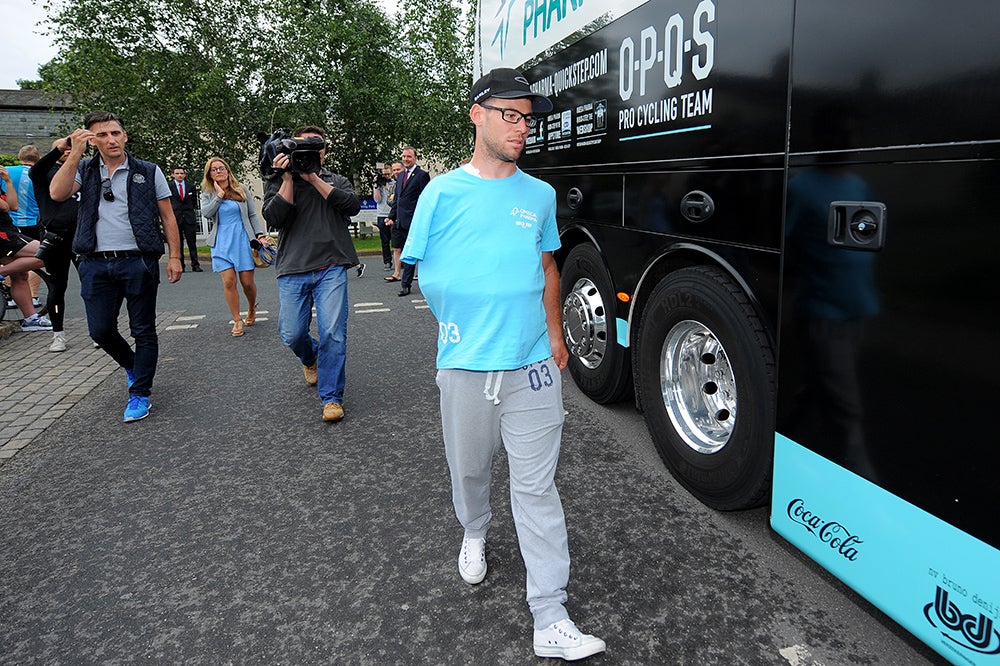Mark Cavendish's future uncertain after disabling crash

Mark Cavendish will head home, possibly for surgery, certainly for recovery. Photo: Tim De Waele | <a href=http://www.tdwsport.com target="_blank">TDWsport.com</a>
SHEFFIELD, England (VN) — Mark Cavendish (Omega Pharma-Quick Step) faces another shoulder scan and possibly surgery Monday after crashing in the first day of the Tour de France. What happens next is uncertain.
“I have no clue what’s next for him. First he has to see how quickly he recovers,” said performance director Rolf Aldag. “In these [next] three weeks, nothing will happen and we can take our time with the exams that we need to do.”
Cavendish dislocated his collarbone and ruptured ligaments Saturday in a crash that he said was his fault.
“It’s quite serious. All the ligaments in his AC joint are ruptured,” said team doctor Helge Riepenhof.
The stage finished in Cavendish’s mom’s hometown of Harrogate and the crash deprived him of a chance to win a rare English stage and take the yellow jersey in front of his people.
“We hoped that he’d be in yellow, that would’ve been the best case,” said general manager Patrick Lefevere. “But this is really the worst case — he’s going home.”
A positive note is that Cavendish will not have to travel far to get there and will be able to start his recovery sooner. He said that he will “probably be out for a few weeks,” which should allow him time to think about his next move.
The Commonwealth Games road race August 3 in Glasgow appears to be too soon for a comeback. He could also return in the Tour de Wallonie in July or the Vuelta a España in August and build to the world championships in Ponferrada, Spain.
“The worst that you could do is throw a plan at him and then readjust it six more times because it is not realistic. That doesn’t work and kills you mentally,” Aldag said.
“We need to set back and plan it correctly. He could return in the Vuelta, the one-day races that are still out there, the world championships … I don’t know.”
What is clear is that Cavendish, with 25 stage wins already, is getting older. The newspaper L’Equipe named him the Tour de France’s best sprinter ever in 2012. However, at 30 years old next year, the “Manx Missile” may never be back to his best, as in 2009-11, when he won five to six stages a year.
“He was there yesterday, but it’s a pity he couldn’t prove it against Marcel Kittel. It’s ‘would’ve and could’ve’ now,” Aldag said.
“You can’t put everything on age. It depends on workload too. Look at Chris Horner, he’s still performing at a high level. He’s old, but he didn’t race too many full seasons on that level. It was the same for Cavendish this year. We didn’t put any early goals on him and just said focus on the Tour.
“Of course, he shouldn’t think about being the fastest man in 2019, but he understands that and everyone realizes it. In 2015 and 2016, no problem, but after that, we’ll see.”